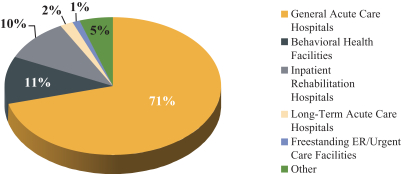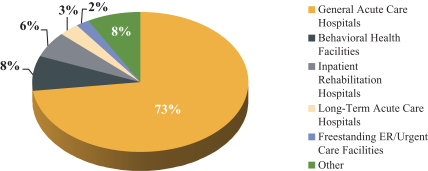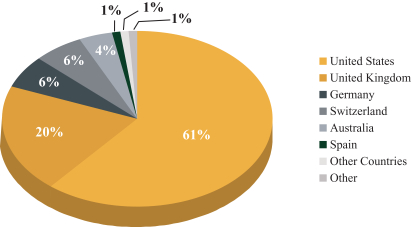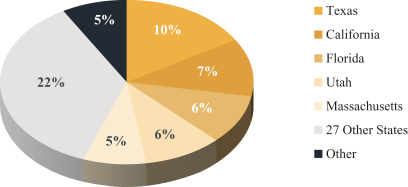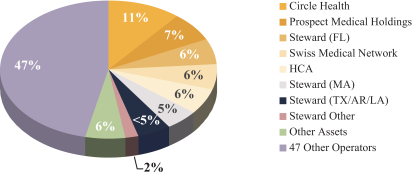(20) Investments in joint ventures (which, for the avoidance of doubt, may include Investments through a Person who does not constitute a Subsidiary of the Issuers or any Restricted Subsidiary), so long as such Investment does not cause an Event of Default (which, for the avoidance of doubt, shall be determined at the time of such Investment).
“Permitted Mortgage Investment” means any Investment in secured notes, mortgage, deeds of trust, collateralized mortgage obligations, commercial mortgage-backed securities, other secured debt securities, secured debt derivative or other secured debt instruments, so long as such investment relates directly or indirectly to real property that constitutes or is used as a skilled nursing home center, hospital, assisted living facility, medical office or other property customarily constituting an asset of a real estate investment trust specializing in healthcare or senior housing property.
“Permitted Payments to Parent” means, without duplication as to amounts:
(A) payments to Parent to pay reasonable accounting, legal and administrative expenses of Parent when due, in an aggregate amount not to exceed $500,000 per annum; and
(B) payments to Parent in respect of its state, franchise and local tax liabilities.
“Permitted Refinancing Indebtedness” means:
(A) any Indebtedness of an Issuer or any of its Restricted Subsidiaries issued in exchange for, or the net proceeds of which are used to, or which serves to, extend, refinance, renew, replace, defease, discharge or refund other Indebtedness of an Issuer or any of its Restricted Subsidiaries (other than intercompany Indebtedness); provided that:
(1) the principal amount (or accreted value, if applicable) of such Permitted Refinancing Indebtedness does not exceed the principal amount (or accreted value, if applicable) of the Indebtedness so extended, refinanced, renewed, replaced, defeased, discharged or refunded (plus all accrued interest thereon and the amount of any fees and expenses, including premiums, incurred in connection therewith, and any committed amounts associated therewith (if the Issuers elected to have such commitment deemed to be Incurred at the time of the commitment in accordance with the last paragraph of the definition of “Incur”));
(2) such Permitted Refinancing Indebtedness has:
(a) a final maturity date no earlier than (x) the final maturity date of the Indebtedness being extended, refinanced, renewed, replaced, defeased, discharged or refunded or (y) the date that is 91 days after the maturity of the Notes, and
(b) an Average Life equal to or greater than the Average Life of the Indebtedness being extended, refinanced, renewed, replaced, defeased, discharged or refunded or 91 days more than the Average Life of the Notes;
(3) if the Indebtedness being extended, refinanced, renewed, replaced, defeased, discharged or refunded is contractually subordinated in right of payment to the Notes or the Guarantee, such Permitted Refinancing Indebtedness is contractually subordinated in right of payment to the Notes on terms at least as favorable to the holders of Notes as those contained in the documentation governing the Indebtedness being extended, refinanced, renewed, replaced, defeased, discharged or refunded; and
(4) such Indebtedness is incurred either (a) by an Issuer or any Subsidiary Guarantor or (b) by the Restricted Subsidiary who is the obligor on the Indebtedness being extended, refinanced, renewed, replaced, defeased, discharged or refunded.
For the avoidance of doubt, Permitted Refinancing Indebtedness in respect of any Indebtedness may be incurred within 180 days after the exchange, extension, refinancing, renewal, replacement, defeasance or refunding of any such Indebtedness.
S-85

